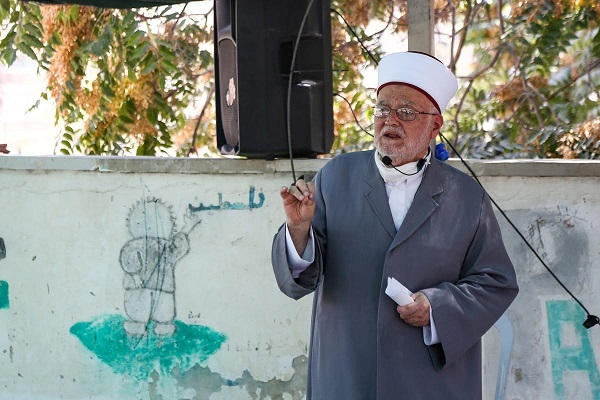Israeli Occupation Imposes Six-Month Ban on Al-Aqsa Imam Sheikh Sabri

The decision, announced on Thursday morning, was confirmed by Sheikh Sabri’s lawyer, Khaled Zabarqa, in a press statement.
The ban follows Sheikh Sabri's arrest last Friday after delivering a sermon at Al-Aqsa Mosque, during which he mourned Ismail Haniyeh, Hamas political bureau chief, who was assassinated in an Israeli attack days earlier.
Although Sheikh Sabri was released shortly after, the ban was formally imposed on Thursday.
Read More:
The Council of Islamic Endowments and Holy Sites in Jerusalem has strongly condemned the ban. In a press release, the council criticized the Israeli authorities for imposing the ban on Sheikh Sabri, a member of the council and a prominent figure, The New Arab reported.
The council reaffirmed its position that Muslims hold exclusive rights to Al-Aqsa Mosque, including its entire 144-dunam area, all its places of worship, buildings, courtyards, walls, and access routes.
It emphasized that no authority has the right to prevent any Muslim from accessing the mosque to pray and fulfill their religious obligations.
The council underscored that these measures against its members will not deter them from their duty to defend and protect Al-Aqsa Mosque. The council reiterated that the mosque is an exclusively Islamic holy site for Muslims.
Read More:
The Israeli regime has occupied Palestine's West Bank, including East al-Quds, since 1967. Palestinians fear that Israeli officials will eventually try to either replace the mosque with a Jewish temple or divide the holy place between Muslims and Jews in terms of time and space available.
Israeli settlers and authorities have aimed to convert East al-Quds from a predominantly Palestinian Muslim and Christian area into a Jewish one.
Concerns about the sanctity of Al-Aqsa Mosque are significant for many Palestinians and Muslims globally.
Source: Agencies



